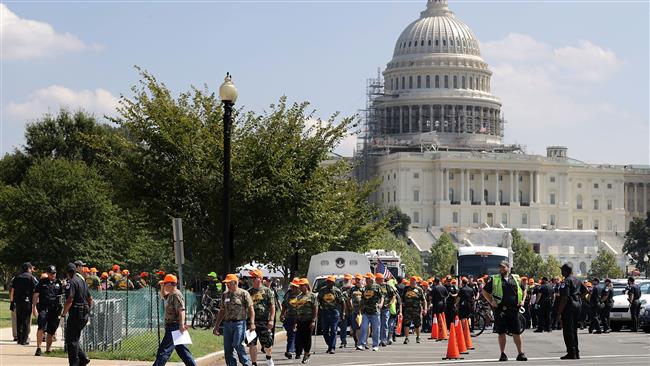-
Tips for becoming a good boxer - November 6, 2020
-
7 expert tips for making your hens night a memorable one - November 6, 2020
-
5 reasons to host your Christmas party on a cruise boat - November 6, 2020
-
What to do when you’re charged with a crime - November 6, 2020
-
Should you get one or multiple dogs? Here’s all you need to know - November 3, 2020
-
A Guide: How to Build Your Very Own Magic Mirror - February 14, 2019
-
Our Top Inspirational Baseball Stars - November 24, 2018
-
Five Tech Tools That Will Help You Turn Your Blog into a Business - November 24, 2018
-
How to Indulge on Vacation without Expanding Your Waist - November 9, 2018
-
5 Strategies for Businesses to Appeal to Today’s Increasingly Mobile-Crazed Customers - November 9, 2018
Harvard Study: Political Dysfunction Threatens US Economy
The study reflects on an ongoing decline in workforce participation, which peaked in 1997, largely driven by the declines in [inflation-adjusted] median household incomes, which peaked two years later, in 1999.
Advertisement
“Corporate tax policy has become a key obstacle to U.S. competitiveness and economic growth, and reforming both corporate and personal taxation is essential to achieving a sustainable federal budget”, the study says.
The US “political dysfunction” is no longer delivering good results to average Americans and has become the biggest barrier to the country’s economic competitiveness, showed a Harvard Business School (HBS) study released Thursday. The U.S. political system, tax code, health care system, public schools, regulation and infrastructure are now all viewed as weaknesses for the economy, according to surveys of Harvard Business School alumni, students and the public compiled in the annual report.
“The weak recovery reflects the erosion of competitiveness, as well as the [country’s] inability to take the steps necessary to address growing United States weaknesses”, the study says.
Large companies have been prospering, small companies struggling and startups lagging. This would be the Democratic diagnosis, as opposed to the usual Republican diagnosis that the government is holding the economy back.
The benefits of slow-growth prosperity are not flowing to the middle and lower classes.
“Our failure to make progress reflects an unrealistic and ineffective national discourse on the reality of the challenges facing the USA economy and the steps needed to restore shared prosperity”.
Campaign finance reform, with either stricter limits on or taxation of contributions.
Eliminating party control of what legislation is voted on by the full House and Senate.
Advertisement
There was near-universal support for tax reform among business leaders in the survey, with the consensus calling for a rate reduction of at least 10 percentage points. Professors, led by Michael Porter, found the political system was actually a key cause in hindering the economic development of the US.





























